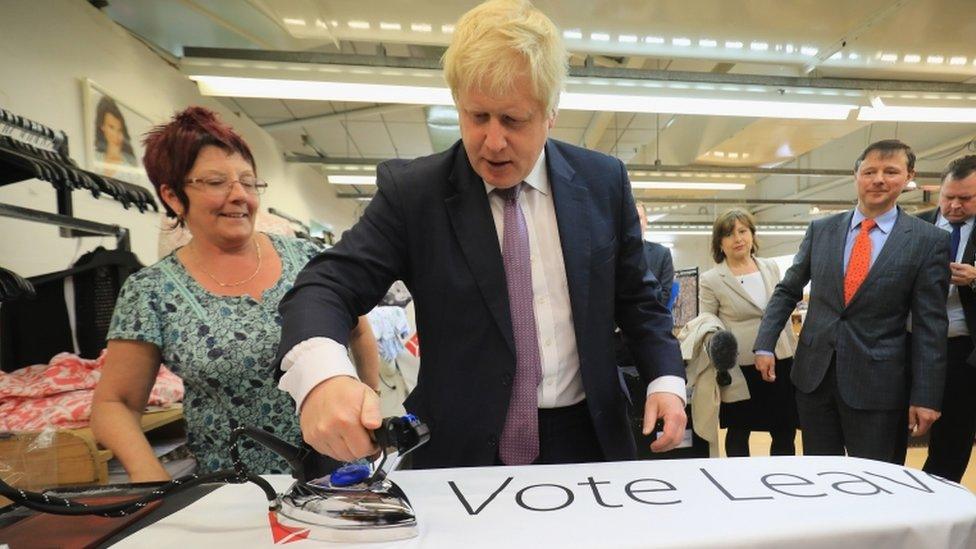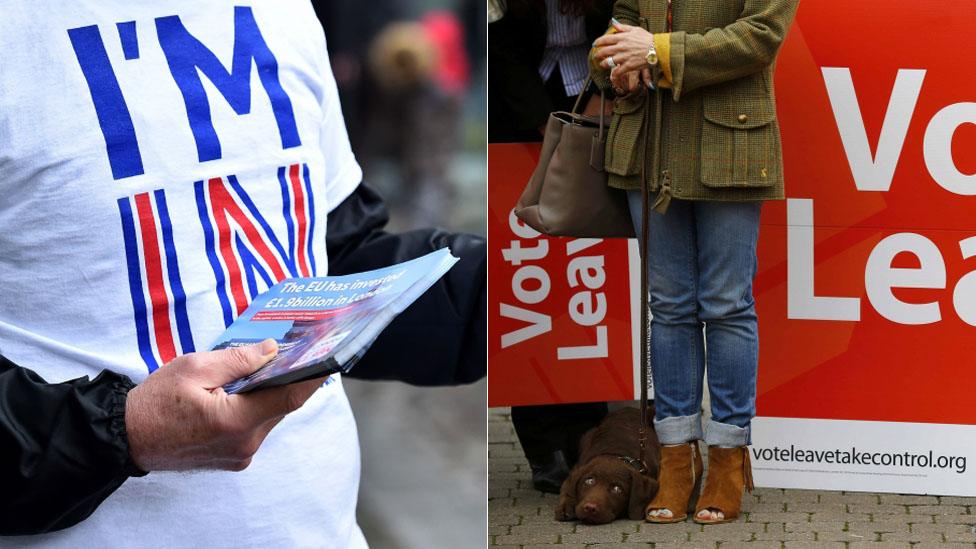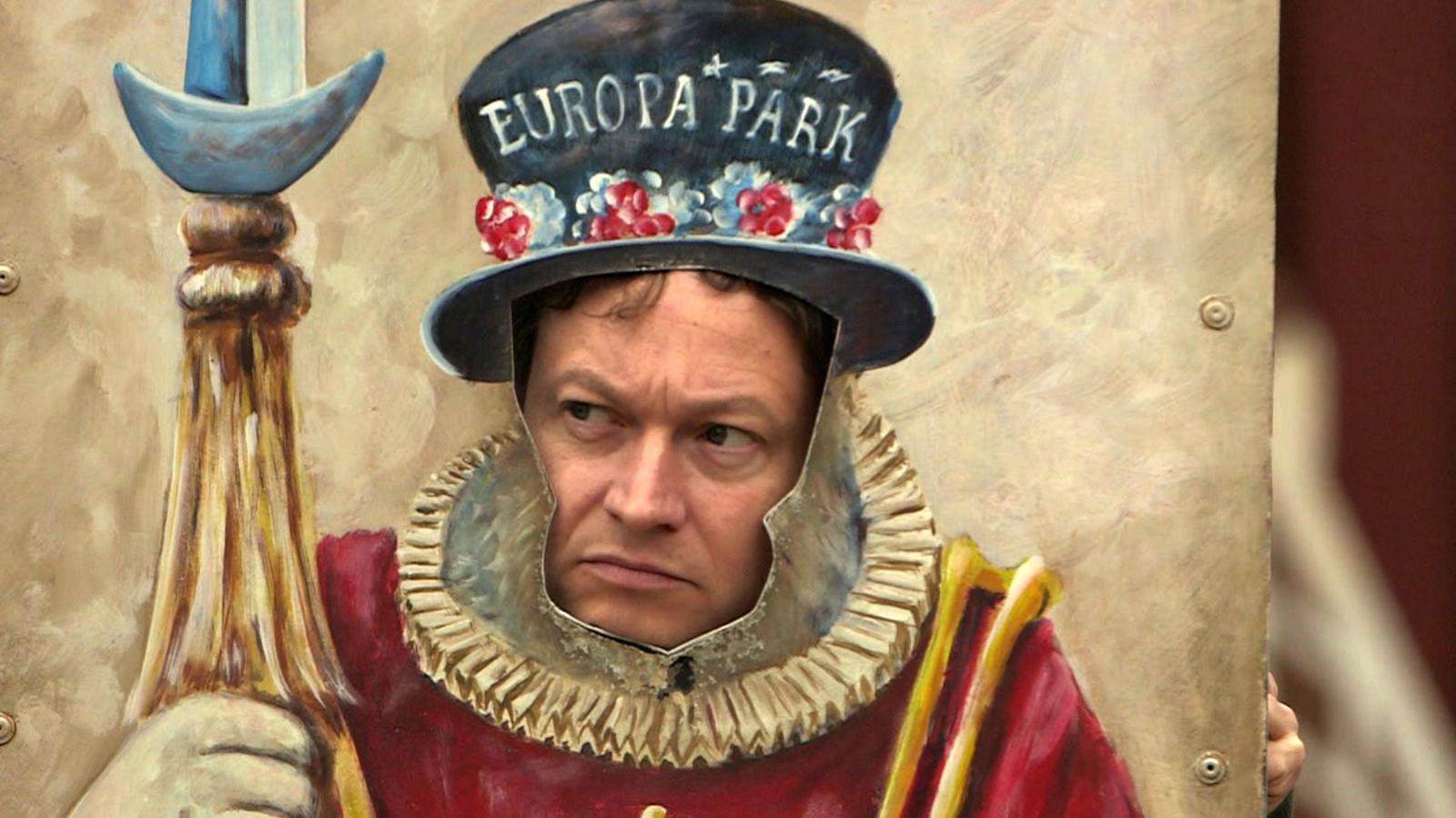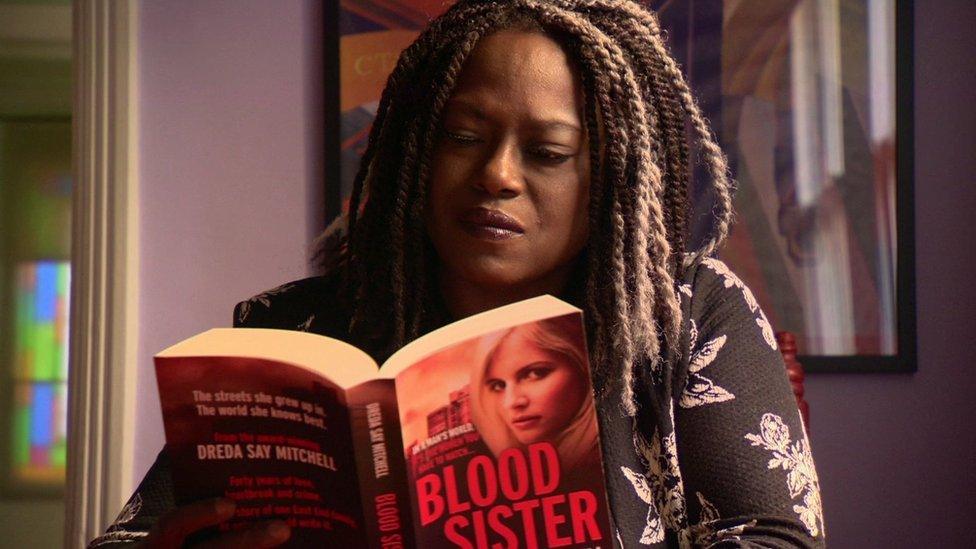EU Referendum: Boris Johnson stands by Hitler EU comparison
- Published
- comments
Boris Johnson: "There's a very good argument against the lack of democracy in the EU"
Boris Johnson is standing by his comparison of the EU's aims to Hitler's, saying a row over the issue is an "artificial media twit storm".
The pro-Brexit Tory MP said both the Nazi leader and Napoleon had failed at unification and the EU was "an attempt to do this by different methods".
Shadow foreign secretary Hilary Benn, who backs Remain, said the comparison was "offensive and desperate".
Tory Leave campaigner Jacob Rees Mogg said Mr Johnson's analysis was correct.
The referendum takes place on 23 June, when voters in the UK will be asked whether they want the country to stay in or leave the European Union.
Speaking to the Sunday Telegraph, Mr Johnson said European history had seen repeated attempts to rediscover the "golden age of peace and prosperity under the Romans"., external
"Napoleon, Hitler, various people tried this out, and it ends tragically. The EU is an attempt to do this by different methods," he said.
"But fundamentally what is lacking is the eternal problem, which is that there is no underlying loyalty to the idea of Europe.
"There is no single authority that anybody respects or understands. That is causing this massive democratic void."
'Divisive politics'
Rejecting Mr Johnson's analysis, Hilary Benn said: "Leave campaigners have lost the economic argument and now they are losing their moral compass.
"To try and compare Hitler and the Nazis - the millions of people who died in the Second World War, the Holocaust - with the free democracies of Europe coming together to trade and co-operate, and in the process to help to bring peace to the continent of Europe after centuries of war, is frankly deeply offensive."
Mr Johnson, who is one of the leading voices in the campaign to get Britain out of the EU, was asked about the criticism of his comments earlier on Monday.
He said there had been several attempts over thousands of years to "recreate the dream of the Roman Empire", and added: "Very often that's been done by force. The EU is different, it's trying to do it in a more bureaucratic way."

Mr Johnson was touring a clothing factory in Derbyshire on Monday as he continued his pro-exit push
Mr Johnson said the EU was a "peaceful organisation" but repeated his point that it was "fundamentally undemocratic" and said it was operating "by stealth" and taking away the "powers and prerogatives of the people of this country".
He also described international figures backing the Remain campaign as appearing in "Downing Street hostage videos".
He said: "People don't understand when they see these Downing Street hostage videos - these people coming through Downing Street and giving these endorsements of the Remain campaign - what they don't understand is they are not speaking for the vast majority of British business."
On the campaign trail with Mr Johnson on Monday, Labour MP and Vote Leave chairwoman Gisela Stuart, who was born in Germany, was asked if she thought his reference to Hitler was tasteful.
Ms Stuart said: "I think we'd all benefit, including our democracy, to go back to what the referendum is about."
Former Labour minister Yvette Cooper, who supports the Remain campaign, has accused Mr Johnson of a "shameful lack of judgement" and a willingness to play "the most divisive, cynical politics".
Lord Bramall, a former head of the British army, said making a comparison between the EU and Nazi Germany was "absurd".
"Hitler's main aim was to create an empire in the East and violently subjugate Europeans. Any connection between that and the EU is simply laughable," he said.
At a Remain event on Monday, Chancellor George Osborne was asked for his views on Mr Johnson's comments. He made reference to Lord Bramall and said: "I think he said what needed to be said about Boris Johnson."
'Historical parallels'
But UKIP MEP Gerard Batten defended Mr Johnson's comments, arguing that Hitler's Germany had drawn up plans for a European economic community which, he said, proposed "harmonisation of European currencies and a harmonised currency system".
"If this all sounds all very familiar it is because the basic plan for the European Economic Community of 1942 was very similar to the actual European Economic Community that came into existence in 1957 under the Treaty of Rome."
Also coming to Mr Johnson's defence, Conservative Leave campaigner Jacob Rees-Mogg said the former London mayor's comments were "absolutely true".
He said Hitler and Napoleon "wanted to create a single European power... by force. And the EU is trying to do it by stealth."
Former Conservative cabinet minister Iain Duncan Smith told the BBC Mr Johnson's article was "rather good" and used "some historical parallels" to explain the concept of "greater Europe".
"I think the whole process of trying to drive Europe together by force or by bureaucracy or whatever other means ultimately makes problems, and that's what he was saying."
- Published14 May 2016

- Published13 May 2016

- Published10 May 2016
- Published5 May 2016

- Published21 April 2016

- Published10 May 2016